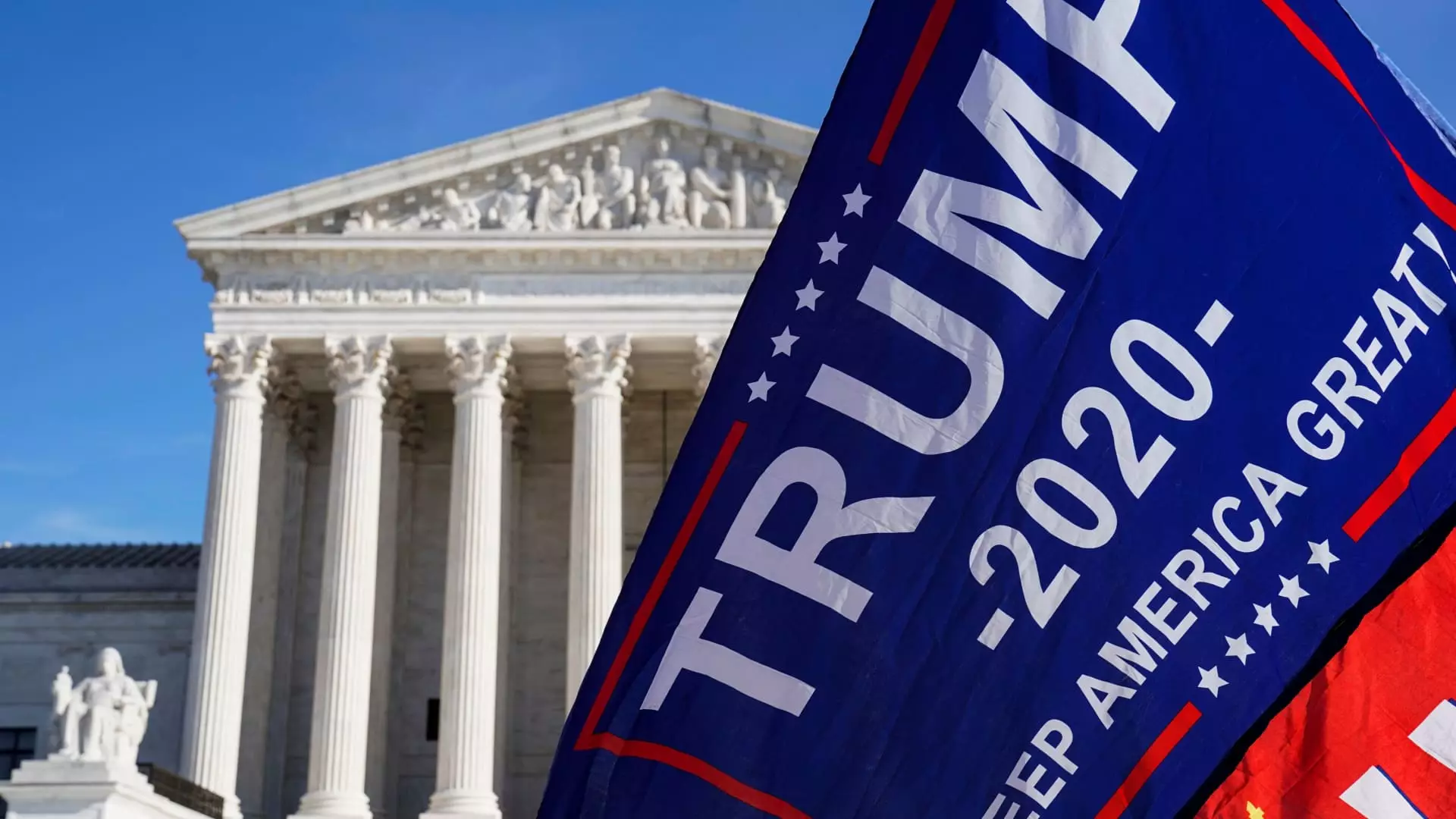During the Supreme Court hearing, Justice Sonia Sotomayor expressed doubt about the argument put forth by former President Donald Trump’s legal team regarding presidential immunity from prosecution. She questioned the notion that a president should be shielded from criminal charges for any official actions taken while in office. Sotomayor raised concerns about the potential implications of such immunity, highlighting the gravity of offenses that could be committed without consequence.
The central issue before the court revolves around whether an ex-president can face prosecution for official acts carried out during the term in office. This question is particularly crucial in the context of special counsel Jack Smith’s case, which accuses Trump of unlawfully attempting to overturn the 2020 election results. The Supreme Court’s ruling on this matter is poised to have far-reaching implications not only for Smith’s case but also for other criminal proceedings involving Trump’s conduct while in power.
While Trump’s attorneys argue that subjecting a president to criminal prosecution for official acts would impede the leader’s ability to govern effectively, Justice Ketanji Brown Jackson raised contrasting concerns. Jackson emphasized the importance of holding the president accountable for potential wrongdoing and preventing the misuse of executive power for illicit purposes. She underscored the risk of allowing the Oval Office to become a hub for criminal activities without the threat of legal repercussions.
In addition to the election interference case under scrutiny, Trump is embroiled in other legal challenges, including a trial in Manhattan Supreme Court related to alleged falsification of business records. Trump’s absence from the Supreme Court proceedings due to his New York trial underscores the complexity of his legal entanglements. The ongoing debate over presidential immunity adds a layer of complexity to his legal defense strategy.
Implications of Supreme Court’s Decision
The Supreme Court’s decision to take up Trump’s immunity claim has postponed the resolution of the election interference case, causing further delays in the legal proceedings. While a speedy ruling is possible, the court typically reserves significant judgments for the end of its term, prolonging the uncertainty surrounding Trump’s legal fate. The outcome of this case could influence the timing of Trump’s trials, potentially impacting the upcoming presidential election.
Legal experts critical of Trump have condemned the Supreme Court’s handling of his immunity claim, particularly after a federal appeals court previously rejected it. The delay in addressing the immunity question has drawn criticism for prolonging the legal saga and allowing Trump to evade accountability for alleged criminal acts. The indictment brought by Smith outlines serious charges against Trump, including conspiracy to defraud the United States, underscoring the gravity of the accusations against the former president.
As the Supreme Court deliberates on Trump’s immunity from prosecution, the outcome of this case holds significant implications for the future of presidential accountability and the rule of law in the United States. The competing arguments presented during the hearing reflect the broader debate surrounding the limits of executive power and the responsibilities of those holding the highest office in the land. The court’s ruling, when delivered, will shape the legal landscape for current and future presidents, setting a precedent for the relationship between presidential authority and criminal liability.

Leave a Reply